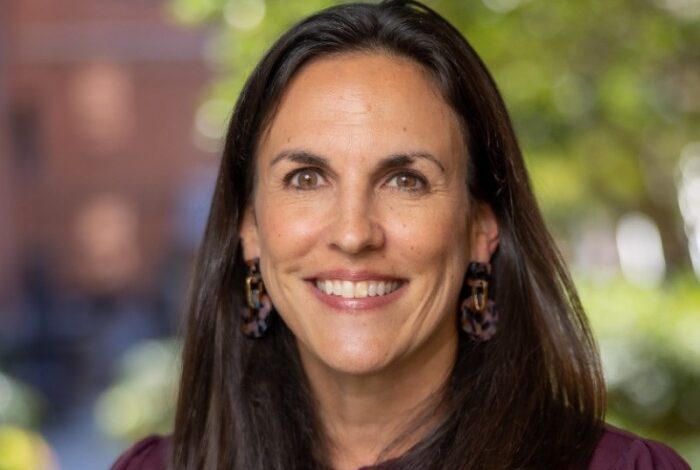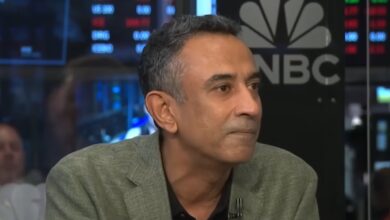Elina Urli Hodges: A Trailblazer in Global Health Innovation and Equitable Access

Elina Urli Hodges is a distinguished professional known for her unwavering dedication to advancing global health, particularly in increasing equitable access to healthcare in low- and middle-income countries. As the Assistant Director of Programs at the Duke Global Health Innovation Center, her expertise lies in the strategic design and implementation of programs that bridge the gap between life-saving health innovations and the populations that need them most. This article explores her educational background, professional journey, and significant contributions to global health through her roles at Duke University, Prevention Partners, and the Council on Foundations.
Early Life and Educational Background
Academic Foundations in Public Health and Global Affairs
Elina Urli Hodges’ academic journey laid a strong foundation for her career in global health and policy. She earned a Bachelor’s degree in Foreign Affairs and French from the University of Virginia. This combination of international affairs and language skills provided her with a unique global perspective essential for her later work in international health.
Building on this foundation, she pursued advanced studies at the University of North Carolina at Chapel Hill’s Gillings School of Global Public Health. There, she obtained a Master of Science in Public Health with a concentration in Health Policy and Management. Alongside her degree, she earned a Graduate Certificate in Global Health, equipping her with the knowledge and tools to tackle complex global health challenges through policy, management, and innovation.
Professional Career Path
Duke Global Health Innovation Center: Championing Access and Innovation
Since 2018, Elina has served as the Assistant Director of Programs at the Duke Global Health Innovation Center (GHIC). In this leadership role, she directs a portfolio of programs designed to increase equitable access to health technologies and services across low- and middle-income countries. Her work emphasizes the entire pathway for scaling health innovations, from research and development to implementation and evaluation.
A key aspect of her role includes advising bio-pharmaceutical companies and their delivery partners on Access to Medicine and Access to Health initiatives. She developed and supports the implementation of the Access to Health Impact Measurement Framework, a crucial tool that helps assess the real-world impact of access programs on health equity.
Elina also leads the Launch & Scale Speedometer initiative, a data-driven project that identifies evidence-based practices to accelerate the introduction and expansion of life-saving health technologies worldwide. This initiative plays a vital role in understanding what factors contribute to the successful launch and scaling of health interventions.
Her leadership extends to managing programs that respond to urgent global health crises, including the COVID Global Accountability Platform and the COVID Treatment Quick Start Consortium. Both programs focus on addressing inequities exposed during the COVID-19 pandemic by ensuring fair access to treatments and vaccines.
Furthermore, Elina has led research efforts aimed at strengthening the World Health Organization’s Prequalification program, which is instrumental in assuring the quality, safety, and efficacy of medicines distributed globally. Her work has spanned projects in countries such as India and Kenya, demonstrating her hands-on experience with global health systems and interventions.
Duke University Health System: Global Engagement and Capacity Building
Before her current role at GHIC, Elina worked as the Global Engagement Manager at Duke University Health System from 2016 to 2018. In this capacity, she designed and delivered healthcare service engagements with global partners, including government bodies, academic institutions, and private sector entities.
Her efforts supported healthcare capacity strengthening in areas such as medical education, nursing education, clinical care delivery, healthcare leadership development, and clinical research. This role required strategic business development skills alongside program management, ensuring sustainable partnerships and impactful health outcomes.
Elina’s work at Duke University Health System involved projects in Kazakhstan and China, further emphasizing her global reach and experience working within diverse health environments.
Prevention Partners: Leadership in National Health Partnerships
Elina’s commitment to public health and prevention is also reflected in her extensive tenure at Prevention Partners, where she served for over six years in multiple roles. Initially a Prevention Fellow, she managed a large-scale, multi-year research study involving over 3,000 participants, overseeing logistics, data collection, and academic collaborations.
Later, as Senior Manager of National Partnerships, she led the organization’s national partnership strategy. She cultivated relationships with prominent entities such as the Centers for Disease Control and Prevention (CDC), American Hospital Association, and Robert Wood Johnson Foundation. Her responsibilities included managing business development, proposal drafting, contract negotiations, and partnership evaluations with multinational corporations, health systems, and government agencies.
Her work in strategic alliances involved providing consulting, data analysis, and training to support population health initiatives across government and private sectors, including the Department of Defense and New York City’s Department of Health. These efforts enhanced her expertise in public health strategy, policy, and partnership management.
Council on Foundations and Early Advocacy Work
Elina’s early professional years include critical roles focused on advocacy and public policy. At the Council on Foundations, she worked as a Government Relations and Public Policy Coordinator, tracking federal legislation affecting private foundations and managing congressional advocacy events.
Her experience in grassroots advocacy began at DDC Public Affairs and the American Heart Association, where she coordinated advocacy volunteer networks and large-scale lobbying days. This background contributed to her deep understanding of policy, public engagement, and the importance of evidence-based advocacy in shaping health outcomes.
Key Contributions and Impact
Advancing Health Equity and Access
Throughout her career, Elina Urli Hodges has been a passionate advocate for health equity, focusing on breaking down barriers that prevent access to essential medicines and health technologies in underserved regions. Her work ensures that innovations do not remain confined to research labs but reach the communities that need them most.
Leadership in Health Innovation Scaling
By directing initiatives such as the Launch & Scale Speedometer, Elina contributes to a critical body of knowledge on how to introduce and expand health interventions effectively. This work informs policymakers, funders, and implementers on best practices, increasing the likelihood of success in improving global health outcomes.
COVID-19 Response and Global Accountability
Elina’s leadership in COVID-19-focused programs highlights her ability to respond swiftly to global health emergencies. By overseeing platforms that promote accountability and equitable treatment access, she has contributed to efforts to mitigate disparities exposed by the pandemic.
Conclusion
Elina Urli Hodges exemplifies leadership and innovation in global health, blending academic rigor with practical experience across continents and sectors. Her role at the Duke Global Health Innovation Center, combined with her extensive background at Duke University Health System, Prevention Partners, and foundational advocacy organizations, positions her as a key influencer in the global movement toward equitable health access.
Through her dedication, strategic vision, and collaborative approach, Elina continues to drive impactful change in how life-saving health innovations reach those in greatest need, ultimately contributing to healthier and more equitable societies worldwide.



